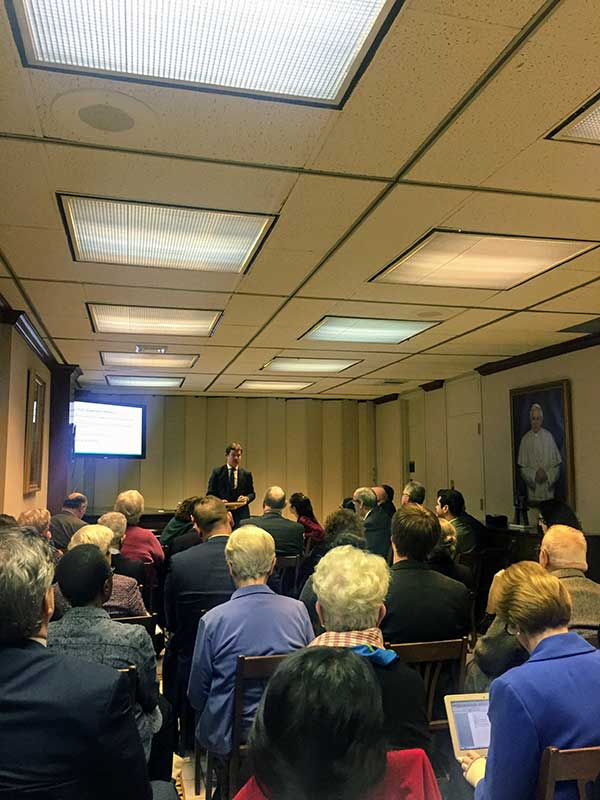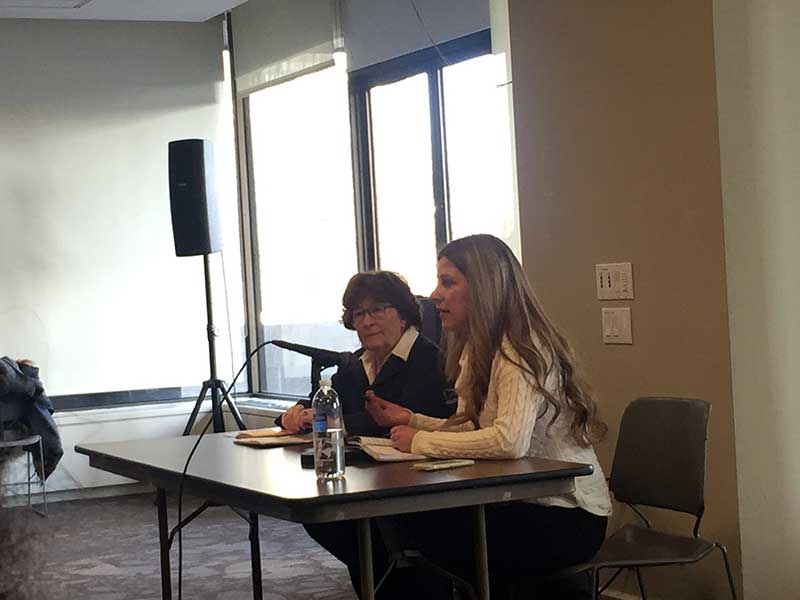Updates on the Global Compact on Migration
By Viviana Garcia-Blanco, Dominican Volunteer
The first round of intergovernmental negotiations on the zero draft for the Global Compact for Safe, Orderly and Regular Migration, otherwise known as the Global Compact for Migration, took place on the 20th, 22nd, and 23rd of February. The negotiations focused on contributions from individual parliaments and other multi-stakeholders towards improving the zero draft. These inputs included adopting accurate and thorough data collection processes that translate into precise statistics around migration; methods for combating xenophobic and racial violence towards minority groups that stem from misinformation; and the significant role the media can play by creating positive narratives at the local and global level surrounding migrants. These initial dialogues were crucial because they addressed critical gaps in the zero draft. These inputs provide unique insights and offer supporting ideas and frameworks that can shape migration policy.
The second round of negotiations will be held from March 12th to the 15th. During this time, delegates will consider a revised draft that includes updates based on comments from the first round of negotiations. During this round, all Member and Observer States have the option of contributing their thoughts and rationales behind the following ideas: differentiation between irregular and regular (migration); differentiation between migrants and refugees; implementation and capacity building, and follow-up and review (of the text)[1].
The entire process of intergovernmental negotiations on the zero draft is crucial to pay attention to, especially given the present political climate. Back in December of 2017, the Trump Administration decided to withdraw the United States from the UN process to develop a Global Compact on Migration. Although disappointing, this was not by any means unexpected from our current Administration given the nationalistic tone that our President has set for the country. When the leaders of our country fail to make efforts towards building a peaceful and inclusive global community, it is up to civil society groups to bridge this gap. Just because our Administration has given up on this cause does not mean the Dominican Leadership Conference has, nor should the rest of our Dominican family. We have the power to contribute meaningful ideas and insights and we have the power to lift up the voices of the members of our communities who are overlooked in their countries. We will continue to follow the stages of the Global Compact on Migration closely during these upcoming weeks making sure that Member States and other entities are living up to their commitments to UN standards.
[1] https://refugeesmigrants.un.org/sites/default/files/letter_co-facilitators_-_programme_of_work.pdf
- 2/22/18 Civil Society Dialogue with the International Organization for Migration held at the Church Center
- 2/12/18 Holy See Workshop on Migration for “Catholic-Inspired NGOs”
- 1/31/18 Civil Society Dialogue with the Special Representative for International Migration Louise Arbour




 Dominican Leadership Conference
Dominican Leadership Conference